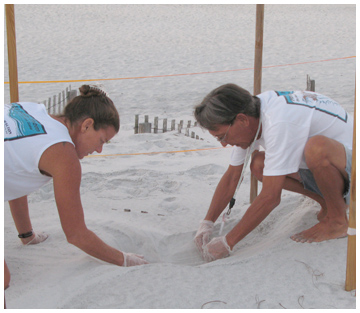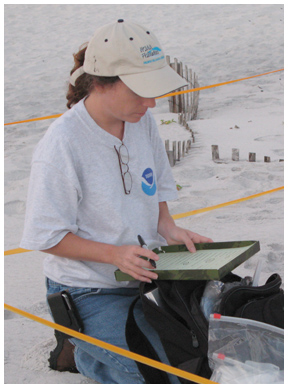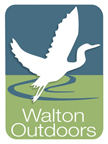
South Walton Turtle Watch Group assists USFWS, NOAA and FWC in relocation program
It was a busy morning on South Walton beaches July 26 as South Walton Turtle Watch assisted U. S. Fish and Wildlife Service and National Oceanic and Atmospheric Administration biologists in relocating sea turtle nests.
The nests are being relocated to the east coast to ensure the sea turtle hatchlings do not encounter oil from the Deepwater Horizon oil spill.
The eggs are removed within a week of hatching from the nest, placed in coolers with dampened sand from the nest, transported in a specially designed, temperature-controlled truck to the east coast. The eggs are then held under monitored conditions until the hatchlings emerge. When they hatch, they are being released into the Atlantic Ocean near Cape Canaveral.

USFWS, NOAAA and Florida Fish and Wildlife Conservation Commission (FWC) are working with the local turtle watch organizations in this effort and will continue throughout turtle nesting season.
To date, more than 3,700 eggs have been excavated from 400 nests along the Gulf Coast in Alabama and Florida panhandle coastline in Escambia, Santa Rosa, Okaloosa, Walton Bay, Gulf and Franklin counties.
As of July 26, Walton County has 28 sea turtle nests; one Kemp’s Ridley and 27 loggerhead. Today two nests were relocated one with 100 eggs and the other with 112.
This unprecedented action is being undertaken because it is far riskier to allow the nests to remain in place and face the possibility that an entire group – or cohort – of sea turtles could perish.
Sea turtle hatchlings face great challenges when they crawl to the water, swim offshore and begin their lives in the ocean. They face many dangerous obstacles, both on the beach and in the water – some natural, some because of man – that make survival difficult.
This summer, the hatchlings of these threatened and endangered species emerging from nests on Northwest Florida beaches face an additional, likely insurmountable obstacle in the form of large amounts of oil from the long-running Deepwater Horizon oil spill in the Gulf. The oil products could cause problems for hatchlings on the beach, but the highest degree of danger lies in the ocean currents that determine where these young sea turtles go. They are the same currents that determine where the floating oil goes, which would constantly bring the young turtles to the floating oil.
“We had to determine the best course of action, given the extraordinary circumstances of this oil spill,” said Dr. Robbin Trindell, FWC’s sea turtle management coordinator. “If we left the hatchlings to fend for themselves, they would face a certain death. While the system we’ve devised will give them at least some chance for survival, it is important to note that relocating nests at any time is also very risky and would be considered only during an unprecedented disaster such as the Deepwater Horizon incident.”
“We don’t move the eggs until they have incubated at least 47-49 days,” Trindell said.
Moving these eggs also brings concerns about disrupting the poorly understood mechanisms that guide a female sea turtle back to the beach where she hatched. It is possible these hatchlings would eventually return to Northwest Florida to nest. However, it is also possible that releasing the hatchlings on the east coast of Florida will result in those turtles returning to the east coast or going to some other area to nest.
For more information on the plan to relocate Northwest Florida sea turtle eggs, go to www.fws.gov/northflorida. To report sightings of oiled wildlife, call 866-557-1401. For more information on sea turtle conservation, visit MyFWC.com/SeaTurtle. For information on volunteering to aid in the recovery effort, call 866-448-5816. For other information on the oil spill, go to MyFWC.com/OilSpill.
To learn more about South Walton Turtle Watch, go to: http://seaturtlewatch.com/
